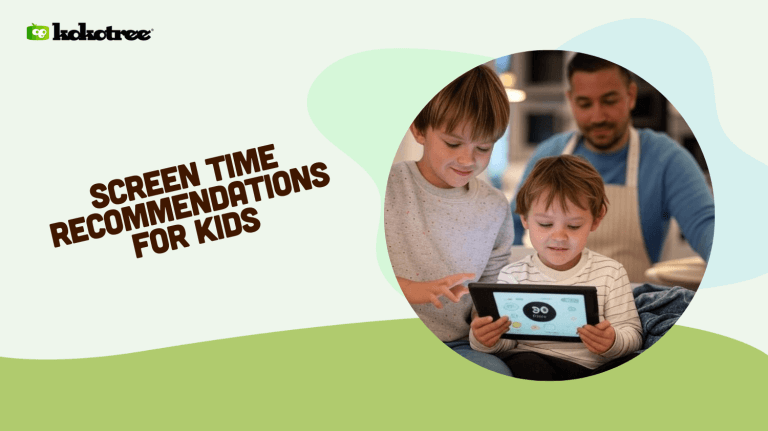

Written by: Kokotree
Posted:

I admit it: I give my 5-year-old daughter screen time every single day. And not just when we’re stuck on a long flight or dealing with a tantrum at the restaurant – I’ve actually built it into our daily routine.
You might be cringing right now. I get it. Between the judgmental looks from other parents at the playground and the endless stream of news articles warning us about “digital damage,” it’s easy to feel like you’re failing your child the moment you hand them a tablet.
But here’s what might surprise you: Research shows that limited, high-quality screen time isn’t just okay – it can actually boost your child’s development. Let me explain why I’ve not only accepted but embraced this controversial parenting choice.
Every afternoon, usually while I’m preparing dinner, my daughter gets about 30 minutes with our iPad (okay, sometimes it stretches to 35 – we’re all human). But here’s the crucial part: this isn’t mindless YouTube surfing. She’s using Kokotree, an preschool app filled with interactive learning games and activities designed specifically for preschoolers.
During these sessions, I watch her tackle increasingly complex puzzles, practice counting through engaging games, match patterns, and work on early reading skills. The level of concentration on her face is remarkable – it’s the same look she gets when she’s building with her blocks or figuring out a new art project.
If you’re feeling guilty about screen time, this might help: A groundbreaking study from the University of Washington has found that quality interactive screen time can actually enhance child development in several key areas:
The critical factor isn’t just how long your child spends with a screen – it’s what they’re doing during that time. There’s a world of difference between passively watching random YouTube videos and actively engaging with educational content that:
Let’s be honest: Screen time isn’t just about child development. The University of Washington study revealed something many parents are afraid to admit: we sometimes need those 30 minutes to get things done. And that’s perfectly okay.
Researchers found that parents often use screen time to:
This isn’t parental laziness – it’s a realistic strategy for managing the complex demands of modern family life.
Here’s how I make sure our screen time stays beneficial:
The reality is that we’re raising children in a digital world. Instead of feeling guilty about moderate screen time, we can focus on teaching healthy technology habits from an early age. When used thoughtfully, screen time can be a valuable tool in your parenting toolkit – not something to feel ashamed about.
The key is finding the right balance for your family. For us, that’s 30 minutes a day of quality, educational content. It gives my daughter a chance to learn and grow while giving me the time I need to be a better, more present parent during the rest of our day.
So the next time someone raises an eyebrow at your child using a tablet, remember: when done right, screen time isn’t just okay – it can be beneficial for the whole family.



